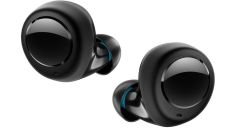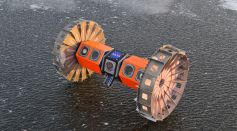TECH & INNOVATION
Instagram Direct Online! The MAC Lovers Guide!

The Best Monitor Deals For Black Friday 2019
How Instagram Uses Artificial Intelligence in 2019

Amazon Gadgets that are on Sale this Black Friday 2019

How Do High Pressure Temperature Sensors Work?

Super Guppy Transports Orion Spacecraft to NASA's Plum Brook Station for Testing

Amazon's Robot Shipping Promises Delivery in Just 30 Minutes

BRUIE is NASA's Solution to Finding Life in Oceanic Worlds

Amazon Black Friday Deals Are Finally Here!

How to Know That You’ve Selected the Best Employee Time Tracking App

The Nuts and Bolts of a Form Builder

The Best Deals For Black Friday is Here

‘Pokemon Sword and Shield’ News & Update: Corsola Has Been Bleached to Death?

What You Need to Know About Kubernetes
Most Popular

What Happens If the Sun Dies? Scientists Reveal Earth's Future

Scientists Grow Lab-Made Human Spinal Cords That Self-Repair After Severe Injuries

Global Exposome Science: Mapping Environmental Health and Chronic Disease Factors

How Scientists Accurately Determine the Universe's Age: 13.8 Billion Years Explained





